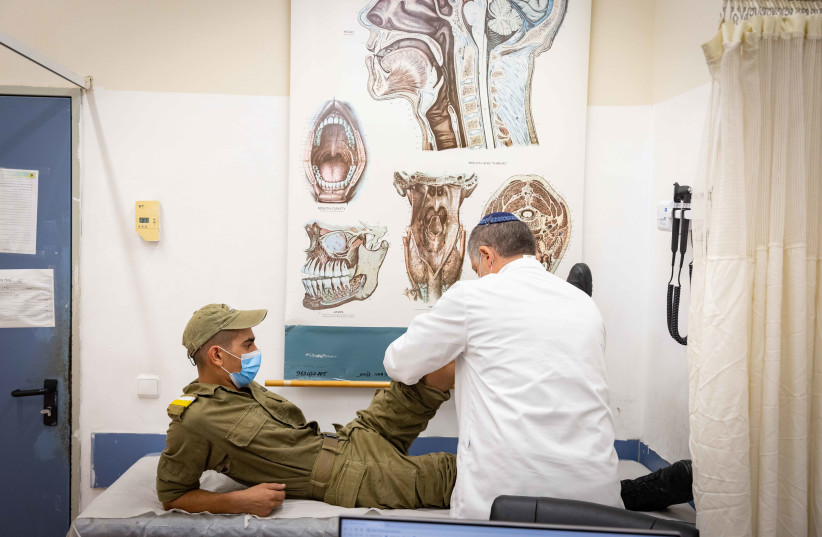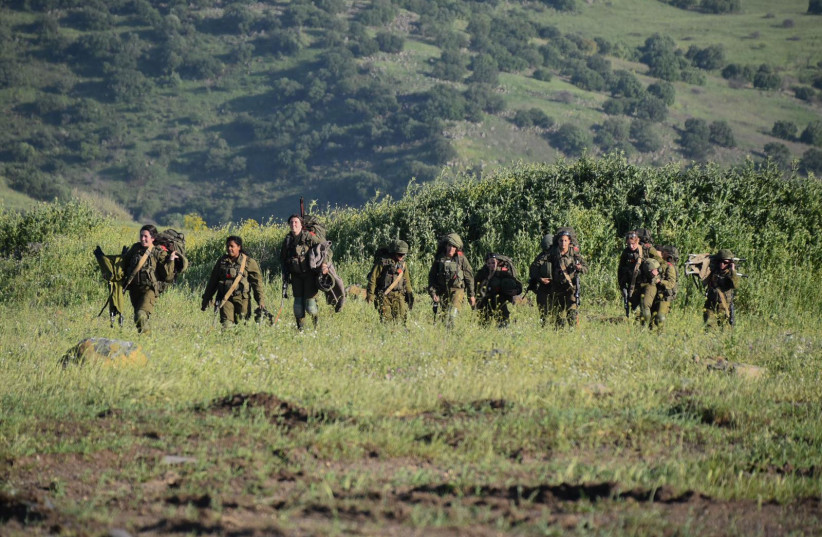A total of 6,075 complaints were filed by IDF soldiers against superior officers in 2022, a new report published on Wednesday morning has found.
The annual report was submitted by Brig.-Gen. (res.) Rachel Tevet-Wiesel – who serves as chief complaints officer in the Defense Ministry - and was presented to Defense Minister Yoav Gallant and the Knesset's Foreign Affairs and Defense Committee.
The ombudsman’s yearly report is based on written complaints that are then investigated with interviews and reviews of internal military reports in order to identify trends within the IDF.
According to the report, of the complaints filed, 3,654 were filed by soldiers in their mandatory service, and another 740 were filed by career soldiers, marking a 13% increase in the number of career soldiers filing complaints compared to the previous year.
Additionally, 450 reserve soldiers filed complaints against senior officers, an 11% increase since 2021, and 800 draftees also filed complaints, a 17% decrease since the previous year.

The report also noted a dramatic increase of 350% when it came to group complaints.
As a result of the complaints filed throughout the year, 692 recommendations were issued to IDF commanders, some of which related to the specific complaint only, while others were system-wide recommendations.
Complaints regarding command and leadership
Around 40% of the complaints filed in 2022 were on the subject of command and leadership, the report showed. Most of these complaints pertained to commanders failing to address issues of individual rights, medical rights, wages, incidents of verbal and physical violence and more.
Most of the complaints concerned young command staff and the immediate commanders of those who had filed complaints, the report found.
One issue noted in the report regarding the violation of a soldier's privacy was the result of a soldier filing a complaint against an officer who had informed her parents that she was involved in a "romantic relationship with a non-Jewish career soldier."
According to the report, this resulted in conflict between the soldier and her parents, and following the acceptance of her complaint, the officer in question was summoned for a conversation with the unit commander. During the conversation, the officer explained that her conduct had stemmed from concern for the soldier on her watch, but apologized for the violation of privacy.
"Once again this year, the rights of IDF conscripts were compromised due to professional gaps on the part of the parties entrusted with safeguarding the individual," wrote Tevat-Weisel in the report.
"The rights of soldiers were harmed, among other things, after the professional officials and commanders did not take care to ensure that the personal record corresponds to the role of the soldiers in practice, that they are given a level of activity that matches the nature of their service or that they are given concessions in terms of service.
"In other cases, commanders did not pay attention to rights in the field of religion, to the management of soldiers' vacations, and to handling requests related to changing assignments."
Healthcare shortcomings in the IDF
Another recurring issue that came up in the complaints filed over the year was the issue of medical rights being violated by commanders choosing to delay referrals to medical officials, preventing meetings between soldiers and specialist doctors and ignoring medical recommendations.
"These cases often lead to a worsening of the soldier's medical or mental condition and a feeling of frustration and helplessness," wrote Tevat Wiesel.

Additionally, many of the complaints pertained to the lack of mental health care available within the army and the lack of mental health officers.
In one instance of a complaint being filed over inadequate mental health care, a soldier stated that there was a two-month delay from the time when she submitted an application for mental health treatment until she was able to see a mental health specialist.
Additionally, the only reason she was able to see a specialist after two months was due to the fact that her case was labeled as urgent after a "suspected self-harm" incident, the report added.
"The medical corps must act immediately, with all the means at its disposal, in order to make sure that all those serving in the IDF receive complete mental health care," wrote Tevet-Weisel of the incident.
In light of this, she recommended that IDF health officials "act in order to reduce the waiting times for meetings with medical personnel." This recommendation was accepted and the drafting of 60 additional mental health officers has already been approved.
Further down the line, IDF soldiers will be able to make appointments with IDF psychologists through a dedicated app, and infrastructure will be created for remote meetings between soldiers and psychologists.
Physical and verbal violence towards soldiers
A large part of the report dealt with the issue of physical violence being directed at IDF soldiers by their senior officers.
One such report was filed by a soldier who claimed that after he had refused to take part in a company training exercise, his company commander instructed the platoon commander to use physical force against him until he agreed to participate.
Another soldier filed a complaint in which he alleged that his platoon commander had physically beaten him, punched him and knocked him to the floor after a verbal altercation.
According to the report, the platoon commander was later found guilty and sentenced to prison.

A third complaint dealt not with physical violence but verbal abuse, with a soldier alleging that his commander had made homophobic and discriminatory comments, including stating that "all gays should be burned."
The commander in question denied that he had made these comments but was found to have been lying. As a result, he was tried and given a fine.
IDF response to report findings
"The IDF sees great importance in the work of the Commissioner for the IDF Ombudsman's Office," the IDF Spokesperson's Unit stated in response to the publication of the report.
"You can see a decrease in the number of complaints on the subject of recruitment to the IDF, availability of medical appointments, transportation for conscripts and more, following the learning and implementation of the lessons from reports submitted in the past."
The response went on to note that: "Commanders in the IDF deal with a lot of individual care, while at the same time making tools accessible for young commanders.
"Cases of discrimination, physical and verbal violence against conscripts are against the values of the IDF, and are investigated and dealth with harshly."
